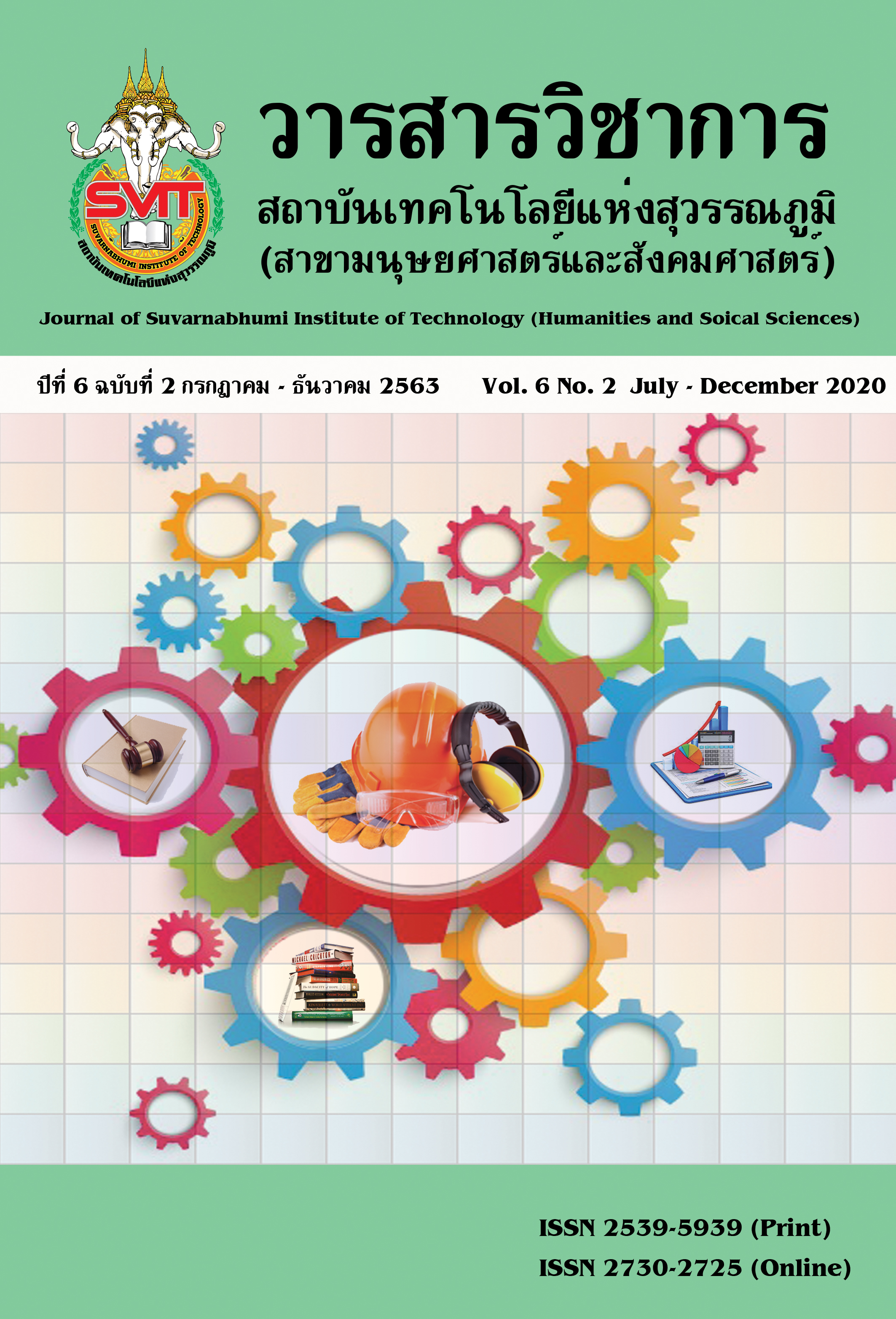OPERATING STUDENT ACTIVITIES TO DEVELOP DESIRABLE CHARACTERISTICS OF THAI GRADUATES
Keywords:
Student activities, Develop student potential, Desirable characteristics of Thai graduatesAbstract
The objective of developing Thai ideal graduates is to create a directional framework for the desirable characteristics of the graduates according to the curriculum. Implementation of graduates development and monitoring the performance of graduates development Of higher education institutions should include: 1) 21st-century learning skills ready to work and have international capability. It corresponds to the needs of graduate users in various fields of careers 2) possesses Thai citizenship and global citizenship 3) there is a wide variety of excellence.
Strategies for developing students in higher education institutions (2017-2021) to be aware of that crucial mission, higher education institutions need to develop student potential in which the student affairs work must aim to encourage graduates to have desirable characteristics according to the curriculum by providing quality and competency covering the framework of student affairs and activities supported by higher education institutions aimed at the students. There is a development of physical, emotional, social, intellectual. The universities in both the public and private sectors able to use activities to develop students to have the characteristics of Thai graduates desirable This could be done through various activities such as the use of activities to develop the desirable characteristics of Thai graduates in 6 areas: 1) academic activities 2) discipline and responsibility activities 3) service activities 4) activities to promote knowledge physical health, good health, and mental health. 5) aesthetic activities in arts, music, and sports. 6) gratitude activities.
References
มหาวิทยาลัยราชภัฏเชียงใหม่. (2562). คู่มือกิจกรรมนักศึกษาประจำปีการศึกษา 2562.
วัลลภา เทพหัสดิน ณ อยุธยา. (2554). การพัฒนานิสิตนักศึกษา. กรุงเทพมหานคร: ภาควิชาอุดมศึกษา คณะครุศาสตร์ จุฬาลงกรณ์มหาวิทยาลัย.
สำเนาว์ ขจรศิลป์. (2552). มิติใหม่ของกิจการนักศึกษา 2: การพัฒนานักศึกษา (พิมพ์ครั้งที่ 2). กรุงเทพฯ: มหาวิทยาลัยเกษมบัณฑิต.
สำนักงานคณะกรรมการการอุดมศึกษา. (2560). สำนักมาตรฐานและประเมินผลอุดมศึกษา.
สำนักงานคณะกรรมการการอุดมศึกษา กระทรวงศึกษาธิการ พิมพ์ครั้งที่ 1.(กรกฎาคม 2560).
มหาวิทยาลัยราชภัฏธนบุรี. (2550). รายงานผลการปฎิบัติงานของผู้สําเร็จการศึกษา มหาวิทยาลัยราชภัฏธนบุรีปีการศึกษา 2556-2557. กรุงเทพฯ : มหาวิทยาลัยราชภัฏธนบุรี, 2561.
ชมพู โกติรัมย์. (2550). รอยต่อความทันสมัยและการพัฒนา 2550. กรุงเทพธุรกิจ. สืบค้นเมื่อ 13 กรกฎาคม จาก http//fulltext.phuket.psu.ac.th/clipping/2550/ 28832.jpg
สำนักงานคณะกรรมการการอุดมศึกษา. (2561). ยุทธศาสตร์การพัฒนานิสิตนักศึกษาใสถาบันอุดมศึกษา. กรุงเทพมหานคร: สำนักงานคณะกรรมการการอุดมศึกษา กระทรวงศึกษาธิการ.
Good, C. V. (1973). Dictionary of Education. New York: Hill Book Co.
Lunenberg, Fred C., & Ornstein, Allan C.. (2004). Educational Administration Concepts and Practices (4th ed). Belmont: Wadsworth/Thomson Learning.
Downloads
Published
Issue
Section
License
The articles published are copyrighted by the Sarasas Journal of Humanities and Social Science. The opinions expressed in each article in this academic journal are those of the individual authors and do not reflect the views of Sarasas Suvarnabhumi Institute of Technology. The authors are solely responsible for all aspects of their respective articles. Any errors or inaccuracies in the articles are the sole responsibility of the authors.



